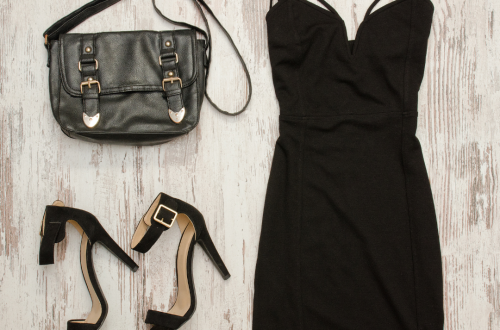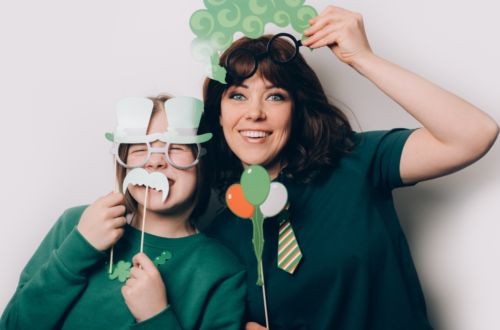
Budget-Friendly Ways to Upgrade Your Lifestyle Without Breaking the Bank
Upgrading one’s lifestyle doesn’t have to come with a hefty price tag. With thoughtful planning and creativity, individuals can make impactful changes that enhance their daily experiences. Budget-friendly ways to upgrade your lifestyle include small adjustments to daily habits, exploring new hobbies, and making savvy shopping choices.
Many people perceive lifestyle upgrades as luxury purchases or extravagant trips. However, simple initiatives like redecorating on a budget, trying out local activities, or investing in personal development can offer substantial improvements without financial strain. These changes can significantly boost well-being and satisfaction.
Exploring community resources, attending workshops, or even starting a DIY project can foster a sense of accomplishment while enhancing one’s living environment. Lifestyle upgrades are within reach for everyone willing to seek out affordable options and innovative ideas.
Establishing a Budget-Friendly Mindset
Creating a budget-friendly mindset involves setting clear financial goals, understanding spending habits, and planning to reduce financial stress. These elements contribute to improved financial stability and align with a budget-friendly lifestyle.
Setting Attainable Financial Goals
Setting specific, measurable, achievable, relevant, and time-bound (SMART) goals is crucial. For instance, rather than stating a desire to “save money,” one might aim to save $1,000 in six months for an emergency fund.
Breaking larger goals into smaller milestones fosters motivation. Regularly tracking progress using budgeting apps or spreadsheets helps maintain focus. Additionally, it’s important to reassess goals periodically. Life circumstances change, so flexibility ensures that goals remain realistic and relevant to present needs.
Understanding Your Spending Habits
A clear understanding of spending habits is essential for making informed financial decisions. Individuals should begin by analyzing monthly expenses.
Creating a categorized list can provide insight into necessary versus discretionary spending:
- Fixed Expenses: Rent, utilities, insurance
- Variable Expenses: Groceries, entertainment, dining out
Identifying patterns in spending helps highlight areas for potential savings. For instance, reducing dining out expenses can free up funds for savings or investment. Regular reflection on these habits can also lead to more mindful spending practices.
Reducing Stress Through Financial Planning
Financial stress often stems from uncertainty. Establishing a budget reduces this stress significantly. Creating a comprehensive budget clarifies income and expenses, providing a roadmap to financial stability.
Incorporating an emergency fund into the budget can serve as a financial cushion, alleviating anxiety related to unexpected expenses. Furthermore, setting aside a small amount regularly for long-term savings can create a sense of security. Having a financial plan in place allows individuals to face expenses confidently, knowing they have prepared adequately.
Practical Strategies to Upgrade Your Lifestyle on a Budget
To enhance one’s lifestyle without overspending, effective budgeting and strategic saving are essential. By focusing on critical areas like budgeting, everyday expenses, and transportation, significant improvements can be made without straining finances.
Creating a Budget That Works for You
Developing a budget involves knowing income versus expenses. It is beneficial for individuals to track their spending over a month. Numerous apps and tools simplify this process, helping to categorize expenses into needs and wants.
A clear budget enables better decision-making about where to allocate funds. For instance, setting limits on discretionary spending can help focus savings on essential upgrades. A common approach is the 50/30/20 rule—50% for needs, 30% for wants, and 20% for savings.
Saving Money on Everyday Expenses
Reducing everyday expenses can significantly contribute to a budget-friendly lifestyle. Simple strategies include making grocery lists to avoid impulse purchases and opting for store brands instead of name brands.
Furthermore, leveraging coupons and cash-back apps can yield substantial savings. Planning meals around sales can also stretch grocery budgets. Reducing dining out and experimenting with cooking can lead to healthier, cost-effective meals. Other everyday savings include negotiating bills, exploring lower-cost services, and comparing prices before purchasing, as well as scheduling timely home maintenance, such as sprinkler repair in Fort Myers (or elsewhere), to prevent costly damage or water waste in the future. Collectively, these actions can free up money for lifestyle upgrades.
Beyond plumbing and exterior upkeep, maintaining the home’s heating system is a vital part of long-term financial planning. Neglecting routine checks can lead to sudden breakdowns during the coldest months, resulting in expensive emergency call-out fees. By investing in professional furnace repair services in Chattanooga, or reliable heater repair specialists in other areas, homeowners can ensure their systems operate at peak efficiency, which significantly lowers monthly utility bills.
These proactive measures not only extend the lifespan of the equipment but also provide peace of mind and consistent indoor comfort. Ultimately, prioritizing these essential mechanical repairs prevents small issues from escalating into major financial burdens.
For residents in warmer climates, the focus often shifts from traditional furnaces to versatile systems that handle both cooling and heating. Maintaining these units is essential for energy efficiency, especially when temperatures fluctuate unexpectedly. If you notice a decrease in performance or an increase in your monthly energy bills, seeking professional heat pump repair in Tampa can prevent minor mechanical issues from turning into expensive replacements. Regular inspections ensure that the reversing valve and coils are functioning correctly, which keeps the system running smoothly year-round. This proactive approach to home climate control is a smart financial move that aligns with a budget-conscious lifestyle.
Cutting Transportation Costs
Transportation costs can be a major part of a budget. To minimize these expenses, individuals can consider carpooling or using public transport to save on fuel and parking fees. For those who drive, regular maintenance can enhance fuel efficiency, which lowers overall costs. Additionally, shopping for the best insurance rates can lead to significant savings.
Exploring biking or walking not only reduces transportation costs but also promotes health. Making informed transportation decisions can play a crucial role in achieving financial flexibility for lifestyle upgrades.
Minimalism and Decluttering for Well-Being
Adopting a minimalist lifestyle and engaging in decluttering practices can significantly enhance well-being. These approaches help individuals create a more serene and organized living environment, leading to improved mental clarity and reduced stress.
Embracing Minimalism for a Simpler Life
Minimalism encourages individuals to focus on what truly matters in life by stripping away excess. By reducing physical possessions, he or she can cultivate a sense of freedom and purpose. This simplification allows for greater appreciation of personal belongings and experiences.
A minimalist approach often involves evaluating one’s lifestyle choices, such as limiting consumerism. By prioritizing quality over quantity, individuals can invest in meaningful items. This shift helps to create a home that reflects personal values and reduces decision fatigue.
The Benefits of Decluttering
Decluttering has immediate and long-term benefits for mental health. Clearing space can decrease anxiety and create a more tranquil environment. Studies suggest that a clean and organized space fosters productivity and creativity.
Starting with small areas can make decluttering less overwhelming. Individuals might choose to tackle one room, drawer, or surface at a time. Techniques like the KonMari method focus on keeping only items that “spark joy,” making the process more enjoyable and purposeful.
Reducing Environmental Impact at Home
A minimalist lifestyle can also lead to a lower environmental impact. By consuming less and opting for sustainable products, individuals contribute to a healthier planet. This approach supports eco-friendly practices, such as recycling and upcycling, further minimizing waste.
Simple practices such as choosing quality items over disposable ones reduce landfill contributions. Incorporating sustainable materials in home decor and furniture can also lessen ecological footprints. For instance, homeowners looking to expand their living space thoughtfully often choose to get a Hadleigh Glass conservatory (or similar options), which can introduce natural light and boost long-lasting design without relying on frequent structural changes. Embracing minimalism ultimately aligns personal well-being with environmental responsibility, providing a holistic approach to lifestyle enhancement.
Maximizing Happiness Through Smart Living Choices
Making intentional choices can greatly enhance happiness without overspending. By finding ways to enjoy dining out and focusing on well-being, individuals can elevate their lifestyle while remaining budget-conscious.
Dining Out Without Breaking the Bank
Dining out can be enjoyable without incurring hefty costs. Opting for lunch instead of dinner often provides similar menu options at a lower price. Many restaurants offer lunch specials that deliver quality meals without straining finances.
Using apps for discounts or loyalty programs can lead to significant savings. Sticking to local eateries not only supports the community but also typically offers better deals compared to high-end chains. Consider dining during happy hours, when select food and drinks are offered at reduced prices. This allows for social interaction without overspending, providing a sense of enjoyment and happiness.
Building Lasting Well-Being on a Budget
Focusing on well-being encompasses more than just financial aspects. Engaging in free community events, like outdoor concerts or workshops, fosters connection and joy. Exploring nature through local parks promotes physical health and mental relaxation.
Creating a budget that allocates funds for self-care activities, such as exercise classes or creative hobbies, enhances overall happiness. Mindfulness practices, like meditation or journaling, require minimal financial investment but can significantly boost mental clarity.
A balanced approach to spending on experiences rather than material items contributes to long-term satisfaction. Ultimately, making smart choices can greatly improve overall well-being without financial strain.





